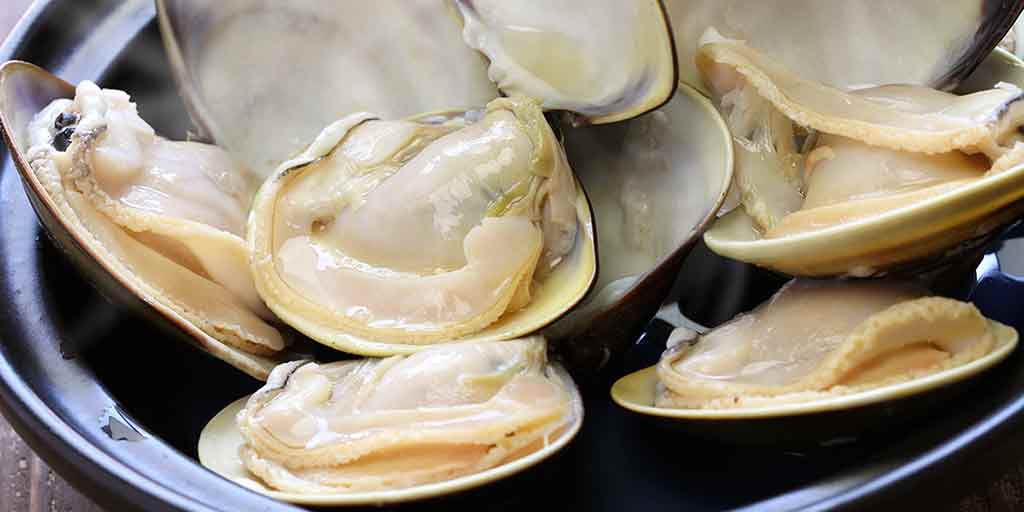Clams are good for you, and that’s a soaring win for seafood lovers. These modest shellfish pack an impressive nutritional punch with 22 grams of protein in each 3-ounce serving. That’s over 40% of what you need daily on a 2,000 calorie diet.
These shellfish are a great way to get nutrients efficiently at just 126 calories and less than 2 grams of fat per serving. Shellfish like clams stand out by a lot compared to other protein sources. A 100-gram serving of cockles has only 79 calories, while the same amount of beef contains 231 calories. Clams rank among the best dietary sources of vitamin B12. They also contain heart-healthy omega-3 fatty acids that provide cardiovascular benefits.
This piece gets into the health benefits of clams from a medical viewpoint. You’ll learn how these nutrient-dense shellfish help your heart health, brain function, immune system strength, and weight management. Many people ask whether canned, fried, or steamed clams provide the same benefits. Here you’ll find clear, evidence-based answers about this often-overlooked seafood option.

Table of Contents
Nutritional profile of clams
Clams pack an impressive punch when it comes to nutrition. These shellfish offer plenty of essential nutrients while staying low in calories. Let’s look at what makes them such a healthy food choice.
High in lean protein and low in fat
Clams excel as a lean protein source. A single 3-ounce (85g) serving packs 22 grams of protein – about 40% of what you need daily on a 2,000 calorie diet. The best part? This serving contains just 126 calories and 1.7 grams of fat.
Your body can digest clam protein more easily compared to other animal proteins. This makes clams perfect for anyone looking to build muscle without extra calories.
A 100-gram portion of steamed clams (about 10 small ones) gives you 25.5 grams of protein. People watching their macros will love that clams have minimal carbs – only 4.4 grams per 3-ounce serving.
Rich in vitamin B12, iron, and selenium
Clams’ most impressive feature is their vitamin B12 content. A 3-ounce serving delivers an amazing 84.1 mcg of vitamin B12 – that’s 1,401% of your daily needs. No other food on Earth packs more B12 per serving than clams.
Your body needs vitamin B12 for healthy nerves, DNA creation, and red blood cell production. Regular clam consumption supports these vital functions effectively.
Clams’ iron content varies by type. Some studies show a 3-ounce serving has up to 23.8 mg of iron (132% daily value), while others note the amount changes based on clam variety.
These shellfish also pack 54.5 mcg of selenium per 3-ounce serving – 78% of daily value. Selenium acts as an antioxidant mineral that fights free radicals in your body.
Other key nutrients in clams include:
- Zinc: 2.3 mg (15% DV)
- Vitamin C: 18.8 mg (31% DV)
- Potassium: 534 mg (15% DV)
- Magnesium: Helps with metabolism and nerve function
Omega-3 fatty acids in clams
Clams offer more than just protein and micronutrients. They contain valuable omega-3 fatty acids too. While not matching fatty fish levels, clams provide good amounts of these heart-healthy fats. A 3-ounce serving of raw clams contains about 13 mg of ALA (alpha-linolenic acid), 37 mg of EPA (eicosapentaenoic acid), and 54 mg of DHA (docosahexaenoic acid).
These omega-3s help reduce inflammation and support heart health. A 4-ounce serving gives you roughly 49% of your daily EPA+DHA needs.
Most of clams’ omega-3 content comes as long-chain fatty acids EPA and DHA. These fats play vital roles in brain health, immune function, and heart health. This makes clams a great choice for anyone wanting to boost their omega-3 intake beyond usual sources.

How clams support heart and brain health
Clams pack an impressive nutritional punch. Their unique mix of nutrients works together to protect your heart and brain – two of your most vital organs.
Omega-3s and cardiovascular benefits
Omega-3 fatty acids in clams are a vital part of heart health. While they don’t match fatty fish levels, clams still give you good amounts of EPA and DHA – the two best omega-3s to protect your heart.
Research shows eating seafood rich in omega-3s several times a week can substantially cut your heart risks. People who eat fish regularly face half the risk of dying from heart disease compared to those who don’t. Studies show death risk from heart disease drops by 21% with fish 1-3 times monthly, 29% once weekly, 31% 2-4 times weekly, and 34% when eaten more than 5 times weekly.
Your heart benefits from omega-3 fatty acids in multiple ways:
- They lower triglycerides while raising HDL (good cholesterol)
- Blood pressure and body fat levels decrease
- Platelet clumping reduces, which helps prevent blocked arteries
- Your heart becomes less prone to rhythm problems
A major study with 11,324 heart disease patients showed amazing results. Patients who took fish oil and ALA supplements daily saw their risk of death, heart attack and stroke drop by 15%. Deaths from health causes fell 20%, and sudden heart attack deaths plunged 45% compared to placebo.
Vitamin B12 and cognitive function
Clams are packed with vitamin B12 – great news for your brain. B12 helps make key brain chemicals like serotonin and dopamine that control mood. This nutrient also helps prevent memory loss.
B12 works by lowering blood homocysteine levels. High homocysteine links to heart disease risk and brain conditions like Alzheimer’s. B12 teams up with folate and vitamin B6 to convert homocysteine into methionine, which helps both heart and brain.
Research connects high blood homocysteine to poor thinking skills and dementia risk. A study of 164 Alzheimer’s patients showed they had more homocysteine and less folate and B12 in their blood than people without dementia.
Anti-inflammatory properties
Omega-3s in clams fight inflammation throughout your body, including blood vessels and brain tissue. This protective effect makes them doubly valuable.
B12 and omega-3s seem to work better together. A study of 168 older adults with mild mental decline found interesting results. B vitamins slowed brain problems better in people with higher omega-3 levels.
If you have joint concerns, clams might help there too. Their omega-3s fight joint inflammation. This makes them great for an anti-inflammatory diet that helps multiple body systems.
Research suggests taking 0.5 to 1.8g of EPA and DHA daily. Adding clams to your diet regularly can help reach these levels and boost both heart and brain health.
Clams and immune system support
Clams excel at supporting immunity. These shellfish pack a unique mix of essential minerals that build a strong foundation for your immune system.
Zinc and immune cell development
Clams pack substantial amounts of zinc, which your immune system needs to function well. A 3-ounce serving gives you 2.3 mg of zinc – about 15% of your daily needs. This mineral helps develop and activate many types of immune cells.
Your body’s immune cells don’t work as well without enough zinc. The mineral supports:
- Neutrophils that fight off pathogens
- B cells’ antibody production
- NK cells that find and destroy infected cells
- T cells’ growth and function
You can boost your zinc levels by eating shellfish like clams, oysters, and mussels. Zinc works double duty as an immune booster and an antioxidant that fights inflammation.
Selenium as an antioxidant
Clams also provide plenty of selenium, a nutrient many people overlook. This mineral acts as an antioxidant that:
- Brings down oxidative stress in your body
- Fights inflammation to boost immunity
- Helps reduce viral mutation
- Shields cells from free radical damage
Your body’s antioxidant system stays balanced thanks to selenium’s ability to manage reactive oxygen species. This protection helps multiple body systems, making clams a smart choice for your immune-supporting diet.
Role of iron in energy and immunity
Clams stand out as iron powerhouses. A 3.5-ounce serving packs 3 mg of iron – 17% of what you need daily. This makes them one of the best sources of heme iron your body can easily use.
Iron boosts immunity in several ways:
- Helps immune cells multiply
- Supports lymphocytes and other immune cells’ development
- Guides immune cells to fight infections effectively
- Moves oxygen through your body for energy
Low iron levels can weaken your immune system significantly. Your cells struggle to fight bacterial and viral infections without enough iron.
Clams offer even more immune benefits through their special peptides that fight bacteria and regulate immunity. These peptides help lymphocytes multiply and boost macrophage activity, which makes your immune system stronger. Clams make an excellent choice if you want to boost your immune defenses naturally. They support optimal immune function through multiple pathways.
Are clams good for weight management?
Clams pack remarkable benefits as part of a weight management strategy if you’re watching your waistline. These seafood gems deliver exceptional nutritional value compared to many other protein sources.
Low-calorie, high-protein food
Clams excel as a calorie-efficient protein source. A 3-ounce serving packs an impressive 22 grams of protein with just 126 calories and less than 2 grams of fat. This protein-to-calorie ratio makes clams perfect if you want to maintain muscle mass while cutting calories.
Your body digests clam protein more easily than many other protein sources. This easy digestibility means your body will use the nutrients efficiently without extra digestive stress, making clams a smart addition to weight management plans.
Satiety and appetite control
The high protein content in clams helps you feel fuller longer and naturally prevents overeating. This feeling of fullness comes from protein’s effects on hunger hormones and digestion speed.
The omega-3 fatty acids in clams might boost this fullness effect even more. Studies show that people who ate more omega-3s while on calorie-restricted diets felt much more satisfied after meals than those who ate less omega-3. This combination of protein and omega-3s creates a powerful appetite-controlling effect.
Comparison with other protein sources
Clams stand out when matched against other protein options for weight management:
- A 100-gram serving of cockles has just 79 calories
- Mussels contain only 74 calories per 100-gram serving
- A 100-gram serving of beef contains 231 calories – almost three times more
Clams don’t carry the saturated fat load of many animal proteins. This makes them valuable if you want to manage your weight while supporting heart health.
Adding clams to your diet proves to be a smart choice for long-term weight management. Their mix of quality protein, low calories, and healthy fats creates the perfect combination of weight-friendly features.
Risks and safety tips when eating clams
Clams pack substantial health benefits, but you need to know the risks to enjoy this nutritious seafood safely.
Shellfish allergies and symptoms
Shellfish allergies impact about 2% of Americans and usually last a lifetime. People experience symptoms like hives, swollen lips or tongue, stomach pain, vomiting, and diarrhea. Some cases can lead to breathing problems. The most dangerous reaction is anaphylaxis, which needs immediate medical help. Anyone with shellfish allergies must stay away from all shellfish products.
Heavy metal accumulation concerns
Filter feeding lets clams build up heavy metals from their surroundings. Research shows different levels of arsenic, cadmium, lead, and mercury in clam tissues. The FDA says it’s safe to eat 3–5 ounces of low-mercury seafood twice weekly. Some imported canned clams have raised new concerns about PFAS (particularly PFOA).
Safe preparation and storage practices
Look for clams with shells that stay tight or close quickly after a tap. Keep fresh clams cool in your fridge using a container that lets them breathe, and never put them under water. Your clams should open up during cooking – throw away any that stay closed. The safe internal temperature is 145°F for 15 seconds.
Are canned clams good for you?
Canned clams keep most of their nutrition with little toxicity risk. They’re convenient and rich in protein, calcium, and potassium. Just check where they come from because the FDA worries about PFAS in some imported brands.
Are fried clams good for you?
Breading and frying adds calories, fat, and possible trans fats to clams. The minerals stay put, but this cooking method cuts down the health perks substantially compared to other ways of preparing them.
Are steamed clams good for you?
Steaming works best to keep clams healthy while making them safe to eat. Steam your live clams 4-9 minutes after the pot gets really steamy. This method keeps all the good protein and minerals that make clams so healthy.
Summing all up
Clams are true nutritional champions in the seafood world. Their combination of high-quality protein and low calories makes them an exceptional food choice. These shellfish pack an incredible amount of vitamin B12 – just one serving gives you over 1,400% of your daily needs.
The health benefits of clams go way beyond their simple nutritional value. Their omega-3 fatty acids help reduce inflammation and protect your heart health. The high vitamin B12 content boosts brain function and might shield you from age-related cognitive decline. Clams’ unique mix of zinc, selenium, and iron strengthens your immune system in several ways.
These shellfish make a smart addition to any weight loss plan. They pack more protein per calorie than most other animal sources and keep you feeling full longer. A 100-gram serving of clams has three times fewer calories than the same amount of beef – that’s great news for anyone watching their weight.
You can handle any safety concerns with proper selection and cooking methods. Steaming works best to keep nutrients intact while ensuring food safety. Canned clams are convenient and retain most nutrients, but you should choose your sources carefully.
Research shows that clams deserve more recognition as a nutrient-dense food. Their rich nutritional profile supports many body systems at once, making them valuable for most diets. Smart eaters should give these modest shellfish a place in their regular meal plans.
Here are some FAQs about if are clams good for you:
Are there any benefits to eating clams?
Yes, there are significant benefits to eating clams as they are an excellent source of lean protein, vitamins, and minerals. They are particularly rich in vitamin B12, iron, and selenium, which support energy production and immune function. This nutritional profile is a key reason the question Are Clams Good for You is answered with a strong yes by nutritionists.
Which is healthier, shrimp or clams?
Both are healthy options, but clams generally have a nutritional edge as they contain more iron and vitamin B12 per serving compared to shrimp. Clams also typically have a lower cholesterol content than shrimp, making them a heart-healthier choice for some individuals. This comparison is important when considering Are Clams Good for You versus other seafood options.
Which is healthier oysters or clams?
Oysters and clams are both highly nutritious, but clams generally contain more iron and protein while oysters are famously high in zinc. The choice between them depends on which specific nutrients you’re seeking to incorporate into your diet. Both represent excellent choices when asking Are Clams Good for You and how they compare to similar shellfish.
Are clams good for your liver?
Yes, clams can be beneficial for liver health due to their high content of vitamin B12 and selenium, which support detoxification processes. Their lean protein content also helps maintain liver tissue without adding excessive fats. This hepatic support contributes to the positive answer when considering Are Clams Good for You, particularly for organ health.
Is clam a superfood?
While there’s no official definition of “superfood,” clams certainly qualify as a nutrient-dense food due to their impressive concentration of vitamins and minerals. Their exceptional vitamin B12 content alone—providing over 1000% of the daily value in just a small serving—makes them stand out nutritionally. This superfood status is why Are Clams Good for You receives such enthusiastic responses from health experts.
When shouldn’t you eat clams?
You shouldn’t eat clams if you have a shellfish allergy or if they were harvested from polluted waters. People with gout may need to limit clam consumption due to their purine content, which can contribute to uric acid buildup. These considerations are important even when generally Are Clams Good for You, as individual health conditions matter.
What is the healthiest shellfish to eat?
While many shellfish are healthy, clams are among the healthiest options due to their exceptional nutrient density and low fat content. They provide more iron and vitamin B12 than most other seafood options while being low in mercury. This outstanding nutritional profile makes them a top choice and explains why Are Clams Good for You is so frequently asked.
What’s the best time to eat clams?
There’s no specific best time to eat clams nutritionally, though many people enjoy them as part of lunch or dinner meals. Some cultures believe eating clams during months without an “R” (May-August) should be avoided due to warmer water temperatures and potential algae blooms, though modern farming has made this less concerning. The timing doesn’t affect the fundamental answer to Are Clams Good for You, which remains positive year-round.
